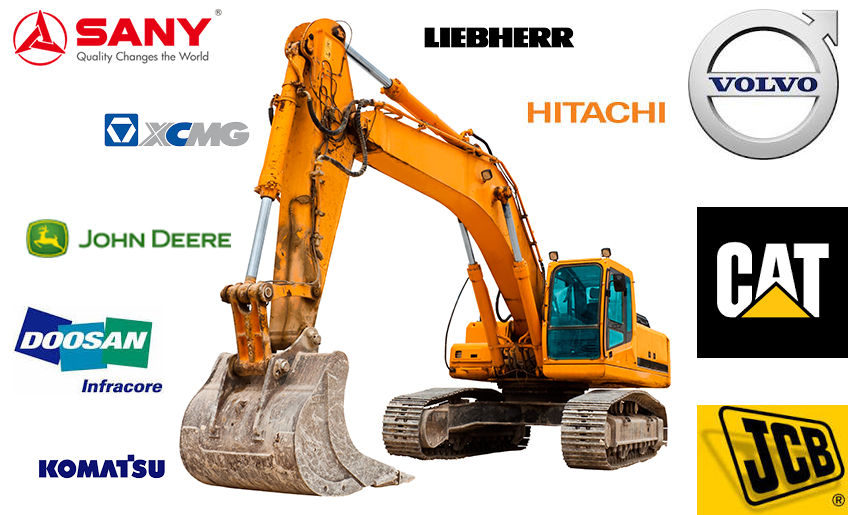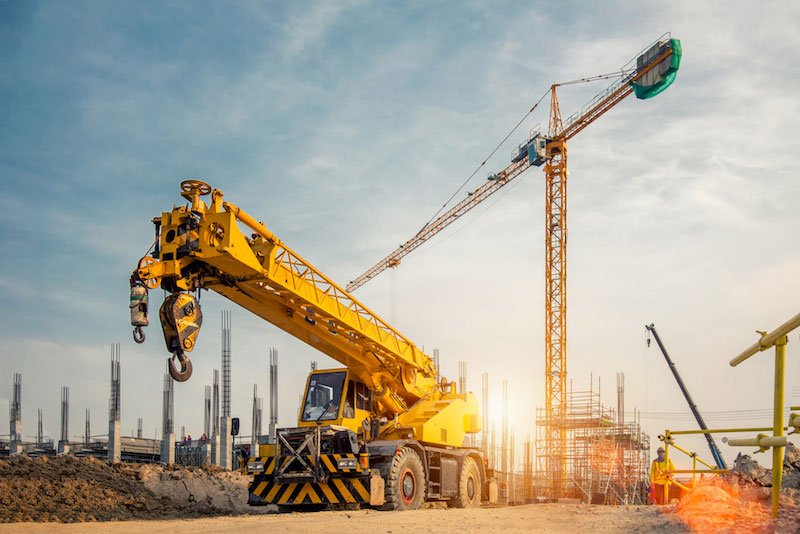Inexpensive Mini Excavator Rental and More: Discover Our Heavy Equipment Rental Services Near You
Inexpensive Mini Excavator Rental and More: Discover Our Heavy Equipment Rental Services Near You
Blog Article
Important Tips for Handling Heavy Devices Rental Arrangements and Logistics Effectively
Efficiently handling hefty devices rental contracts and logistics is critical for the success of any job that counts on these sources. A thorough understanding of rental terms, coupled with specific assessment of devices requirements, lays the structure for positive arrangements. Furthermore, working with transportation logistics and preparing for ongoing maintenance can dramatically lower unexpected expenses and delays. Nonetheless, the ins and outs of these aspects commonly existing difficulties that call for strategic insight. What are the vital factors to consider that can transform these possible pitfalls right into opportunities for effectiveness and cost-saving?
Understand Rental Terms
Understanding rental terms is important for successful hefty tools monitoring. The rental period defines the duration for which the tools is leased, influencing budgeting and task timelines.
In addition, it is critical to understand the upkeep obligations outlined in the contract. Usually, rental companies maintain the tools, yet understanding that is accountable for routine checks and repairs is vital to avoid operational interruptions. Furthermore, terms might consist of stipulations worrying liability for problems or burglary, which can have significant economic effects otherwise properly understood.

Assess Devices Requirements
Analyzing equipment needs is an essential action for any type of job manager aiming to enhance source appropriation and enhance operational performance. This process involves a complete assessment of the job needs, consisting of details tasks, timelines, and the kind of equipment needed to accomplish wanted end results.
Begin by determining the range of the job and the jobs that will be carried out. Think about variables such as the surface, the range of operations, and any type of potential obstacles that might influence tools selection. Engaging with employee who will certainly run the equipment can give important understandings right into useful demands and choices.

Next, evaluate the capacity and capabilities of offered tools alternatives. It is crucial to match the right devices to the tasks at hand, making sure that it can handle the anticipated workload without compromising safety or efficiency.
Furthermore, variable in the rental duration and regularity of use. Understanding these aspects can aid determine whether renting out or buying is the most cost-effective remedy. By conducting a comprehensive evaluation of tools requirements, job managers can make enlightened choices that result in enhanced performance and lowered operational costs.
Negotiate Efficiently
Once the equipment needs are plainly identified, the next step entails efficient settlement with rental business to safeguard desirable terms. Begin by looking into different rental business to recognize their prices structures, inventory accessibility, and reputation.
When approaching the arrangement table, be clear concerning your requirements, consisting of the sort of tools, rental period, and any kind of additional services you may require. This transparency makes it possible for rental companies to supply tailored solutions that can satisfy your particular requirements (mini excavator rental). Don't wait to request for discount rates, particularly for long-lasting services or mass orders, as many business agree to offer giving ins to secure bigger agreements
These variables can considerably influence the overall cost and ought to be explicitly detailed in the rental arrangement. Make certain that all agreed-upon terms are documented in writing to stop misunderstandings and shield your rate of interests throughout the rental period.
Coordinate Transport Logistics
Working with transport logistics is an essential aspect of managing hefty equipment rental agreements. Effective transportation guarantees that tools is provided on schedule and in ideal condition, therefore decreasing downtime and improving task performance. To achieve this, it is vital to develop a detailed logistics plan that outlines the entire transport process from pickup to distribution.
Begin by evaluating the specific transport requirements based upon the type and dimension of the devices entailed - heavy equipment rental. Involve with trusted transportation companies who focus on hefty tools to ensure they possess the essential competence and equipment, such as flatbed vehicles or specialized trailers. Review factors such as weight limits, route restrictions, and required licenses to prevent unforeseen hold-ups
Moreover, preserve open interaction with both the rental company and the transportation service provider to coordinate routines successfully. Confirm all details, including pick-up and drop-off times, to make sure everybody is aligned and prepared. Establish backup strategies to resolve any type of prospective interruptions, such as damaging weather condition or traffic problems, which might affect the transport timeline. By thoroughly coordinating transportation logistics, you can promote the honesty of your rental agreement and help with smooth project implementation.
Prepare For Upkeep and Assistance

In addition, it is essential to communicate directly with the rental supplier regarding maintenance duties. Some contracts might consist of upkeep as part of the rental service, while in various other instances, the obligation might drop on the renter. Understanding these terms will assist stay clear of unforeseen expenses and responsibilities.
Additionally, having accessibility to technical assistance can be important. Guarantee that the rental business provides 24/7 assistance or an emergency call, enabling swift resolution of any equipment concerns. Training your group on correct equipment usage and regular checks can additionally substantially improve functional effectiveness.
Final Thought
Finally, effective administration of heavy devices rental arrangements and logistics rest on a detailed understanding of rental terms, specific analysis of tools requirements, and skilled arrangement skills. Collaborating transport logistics and preparing for maintenance better enhance operational performance. By applying these methods, companies can alleviate threats, control prices, and make certain dozer rental that tasks proceed efficiently and within established timelines. Stressing clear interaction with all stakeholders stays vital in navigating the complexities of tools leasing and logistics administration.
Effectively taking care of heavy devices rental contracts and logistics is vital for the success of any kind of job that counts on these resources. By thoroughly evaluating and recognizing these rental terms, companies can make enlightened choices, mitigate threats, and make sure that their heavy devices management aligns with job goals and economic restrictions.Coordinating transport logistics is an important aspect of managing hefty tools rental agreements.In conclusion, effective monitoring of hefty devices rental arrangements and logistics joints on a complete understanding of rental terms, specific assessment of devices needs, and skilled settlement skills. Emphasizing clear interaction with all stakeholders stays essential in browsing the complexities of equipment service and logistics administration.
Report this page